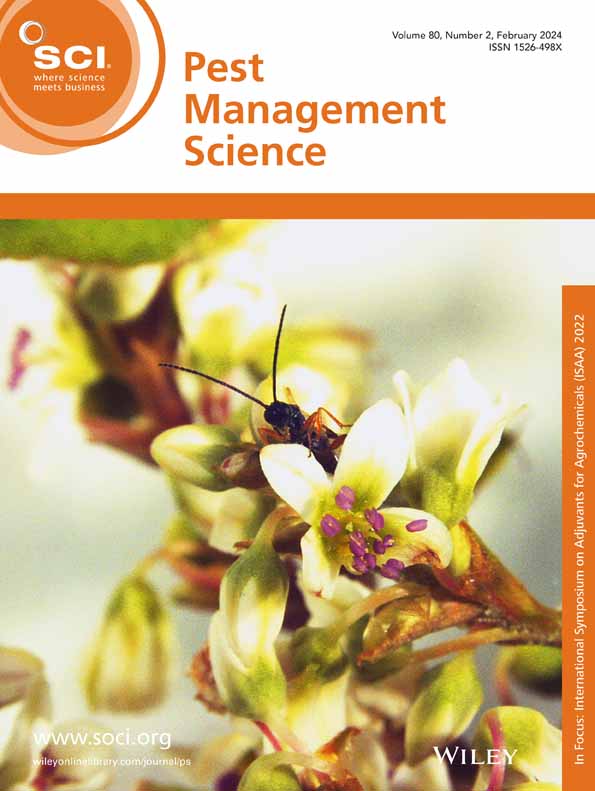Optimized emamectin benzoate trunk injection: addressing temperature limitations for pine wilt disease control
Abstract
BACKGROUND
Pine wilt disease (PWD), caused by the pinewood nematode Bursaphelenchus xylophilus, poses a significant threat to global forestry, resulting in extensive economic and ecological damage. Traditional trunk injection agents (TIAs) are limited by environmental factors, such as high winter temperatures and vigorous resin flow, particularly in southern China. This study aimed to develop an ordinary temperature trunk injection agent (OTTIA) for year-round application and to evaluate its performance under high-temperature conditions in comparison to commercial TIAs.
RESULTS
Extensive laboratory and field tests identified N,N-Dimethylformamide (DMF) and benzyl acetate as optimal solvents and Tween-40 as an effective emulsifier for the OTTIA formulation. The new agent was fully absorbed by Pinus massoniana within 3 h at temperatures exceeding 30 °C, outperforming existing commercial agents. Treated trees maintained comparable emamectin benzoate (EB) levels but achieved lower LC90 lethal concentration values (27.65 mg L−1), indicating greater efficacy. The OTTIA provided protection against PWD for ≥ 360 days postinjection. [Correction added after first online publication on 24 October 2024; In Abstract (RESULTS section), the symbol less than or equal to (≤) has been changed to greater than or equal symbol (≥) in the sentence “The OTTIA provided protection against PWD for ≥ 360 days postinjection”.]
CONCLUSION
The development of OTTIA marks a significant advancement in PWD management, offering an effective solution for high-temperature regions and potentially transforming year-round treatment strategies. The results highlight the critical role of optimizing solvent and emulsifier combinations to enhance the efficacy and application of trunk injection agents, contributing to sustainable forest management and improved protection against PWD. © 2024 Society of Chemical Industry.

 求助内容:
求助内容: 应助结果提醒方式:
应助结果提醒方式:


